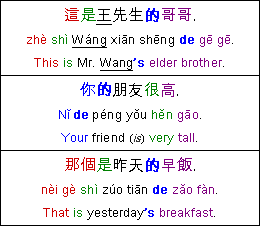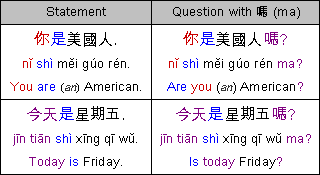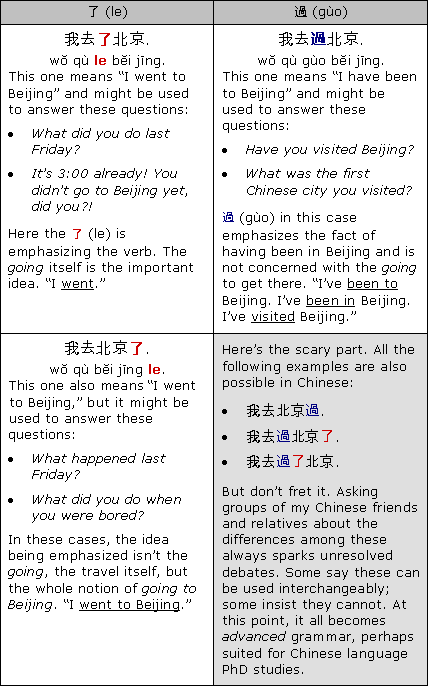




"Particles." Sounds like it could be Quantum Physics, I know, but it's not. It's still Grammar. Sorry.
In addition to using adverbs, many of the linguistic operations which English performs by changing the form of the verb, or by using possessive pronouns, are accomplished in Chinese by adding a particle to the sentence.
Particles typically occur in the neutral tone. The following examples introduce us to three different kinds of particles: structural, interrogative, and aspectual.
One of the particles used most is
(de). Added to a noun or pronoun, this structural particle performs the same function
as the English possessive "apostrophe s" ('s), or creates the equivalent
of possessive pronouns, like his, her, their, and so on.

Adding the interrogative particle
(ma) to the end of a declarative statement turns the sentence into a question.

Here the particles are aspectual particles, which we looked
at on the previous page. These often serve to communicate some subtle differences
in meaning. A couple good examples to compare are
(le) and
(gło), as
they both indicate that something happened in the past.
Let's stick with
our "I go Beijing" example, ![]() ,
and look at some contexts in which we might use
,
and look at some contexts in which we might use
(le) and
(gło) to
answer different kinds of questions:
